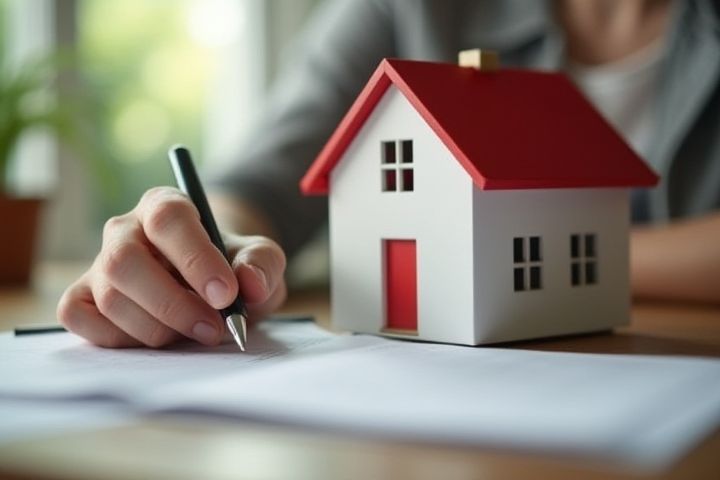
Buying a house with bad credit is possible, though it presents certain challenges. Lenders may offer options such as FHA loans, which are specifically designed for individuals with lower credit scores and require only a modest down payment. You might also consider working with a co-signer who has a stronger credit profile to increase your chances of approval. Improving your credit score through timely bill payments and reducing your debt can enhance your mortgage options. Understanding the various loan programs available allows you to navigate the home-buying process more effectively despite your credit situation.
Is It Possible To Buy A House With Bad Credit
Consider FHA loans
FHA loans are a practical option for purchasing a house with bad credit, as they often have more flexible credit requirements than conventional loans. To qualify, you typically need a credit score of at least 580 for a 3.5% down payment, while those with scores between 500 and 579 may still qualify with a higher down payment of 10%. Moreover, FHA loans offer competitive interest rates and allow for higher debt-to-income ratios, making homeownership more accessible. Researching FHA loan programs can provide you with valuable information tailored to your financial situation.
Explore VA loans
VA loans are a viable option for purchasing a home, even if you have bad credit. These loans, backed by the U.S. Department of Veterans Affairs, offer benefits such as no down payment, competitive interest rates, and flexible credit requirements. Typically, a minimum credit score of around 620 is recommended, but some lenders may still consider applicants with lower scores. By utilizing a VA loan, you can take advantage of these favorable terms to achieve homeownership despite credit challenges.
Look into USDA loans
Yes, you can buy a house with bad credit by exploring USDA loans, which cater to low- to moderate-income buyers in rural areas. These loans require no down payment and allow credit scores as low as 580, making them accessible even for those facing credit challenges. In fiscal year 2022, the USDA guaranteed over 140,000 loans, enabling many families to achieve homeownership despite financial hurdles. You might also benefit from the lower mortgage insurance rates associated with USDA loans, which can significantly reduce monthly payments.
Use alternative credit data
Buying a house with bad credit is possible by leveraging alternative credit data. This includes factors such as your payment history on rent, utility bills, and insurance, which can demonstrate financial responsibility. Lenders may consider these non-traditional data points to assess your creditworthiness, making it easier for you to secure a mortgage. Engaging with lenders specializing in FHA loans or portfolio loans can also increase your chances, often requiring lower credit scores compared to conventional mortgages.
Save for a larger down payment
Buying a house with bad credit can be challenging, but saving for a larger down payment significantly improves your chances of approval. A typical down payment ranges from 3% to 20% of the home's price; however, aiming for at least 20% can help you avoid private mortgage insurance (PMI) and potentially secure better loan terms. By demonstrating substantial savings, you signal financial responsibility to lenders, making it easier to negotiate favorable rates. As you work towards your goal, consider exploring local programs that assist first-time homebuyers with down payment assistance or favorable financing options.
Find a co-signer
Finding a co-signer can significantly enhance your chances of purchasing a house with bad credit. A co-signer, typically a family member or trusted friend, agrees to take joint responsibility for the mortgage, helping to improve your overall loan approval odds. With a co-signer on board, lenders may consider your application more favorably, as their better credit score can mitigate the risk associated with your credit history. Consider discussing terms and conditions with your potential co-signer to ensure both parties understand their obligations and the impact on future financial decisions.
Seek out credit unions
Credit unions are often more flexible than traditional banks when it comes to lending, making them an ideal option for purchasing a house with bad credit. Many credit unions offer specialized loan programs designed for individuals with lower credit scores, typically starting from 580. You can also benefit from lower interest rates, often ranging from 3% to 5%, which can significantly reduce your monthly mortgage payments over time. Be prepared to provide additional documentation, such as proof of income and financial history, to enhance your chances of securing a loan despite your credit situation.
Look into lease-to-own options
Exploring lease-to-own options can be a viable path to homeownership, especially if you have bad credit. This arrangement typically allows you to rent the property with the opportunity to purchase it later, often for a predetermined price. During the lease period, a portion of your monthly payments may contribute toward the eventual down payment, helping you build equity. This strategy can improve your credit over time, making it possible to secure a traditional mortgage in the future.
Improve credit habits
Buying a house with bad credit can be challenging, but improving your credit habits is a crucial step towards homeownership. Start by reviewing your credit report for inaccuracies; 79% of reports contain errors that can negatively impact your score. Setting up automatic bill payments can help you maintain a history of on-time payments, as 35% of your credit score is based on payment history. Aim to reduce your credit utilization ratio below 30% by paying down existing debts, which can improve your score significantly over time.
Consult a financial advisor
Consulting a financial advisor can provide valuable insights when considering home buying with bad credit. Your credit score typically ranges from 300 to 850, with scores under 580 classified as poor. A financial advisor may suggest specific lenders specializing in loans for individuals with low credit scores, as well as government-backed options like FHA loans that have more lenient requirements. They can help you understand the implications of your credit situation and create a tailored plan to improve your eligibility for a mortgage.
